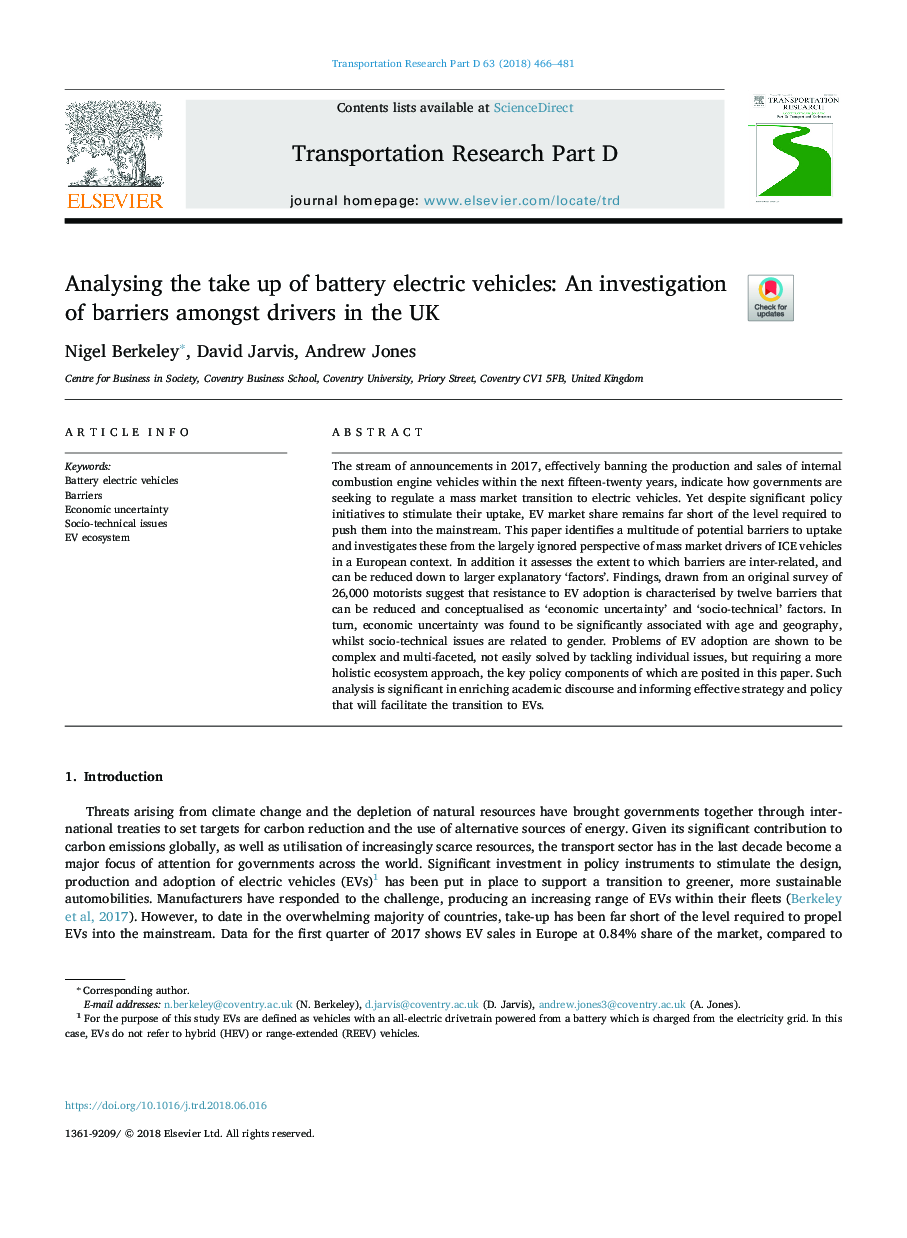| Article ID | Journal | Published Year | Pages | File Type |
|---|---|---|---|---|
| 7498486 | Transportation Research Part D: Transport and Environment | 2018 | 16 Pages |
Abstract
The stream of announcements in 2017, effectively banning the production and sales of internal combustion engine vehicles within the next fifteen-twenty years, indicate how governments are seeking to regulate a mass market transition to electric vehicles. Yet despite significant policy initiatives to stimulate their uptake, EV market share remains far short of the level required to push them into the mainstream. This paper identifies a multitude of potential barriers to uptake and investigates these from the largely ignored perspective of mass market drivers of ICE vehicles in a European context. In addition it assesses the extent to which barriers are inter-related, and can be reduced down to larger explanatory 'factors'. Findings, drawn from an original survey of 26,000 motorists suggest that resistance to EV adoption is characterised by twelve barriers that can be reduced and conceptualised as 'economic uncertainty' and 'socio-technical' factors. In turn, economic uncertainty was found to be significantly associated with age and geography, whilst socio-technical issues are related to gender. Problems of EV adoption are shown to be complex and multi-faceted, not easily solved by tackling individual issues, but requiring a more holistic ecosystem approach, the key policy components of which are posited in this paper. Such analysis is significant in enriching academic discourse and informing effective strategy and policy that will facilitate the transition to EVs.
Related Topics
Life Sciences
Environmental Science
Environmental Science (General)
Authors
Nigel Berkeley, David Jarvis, Andrew Jones,
